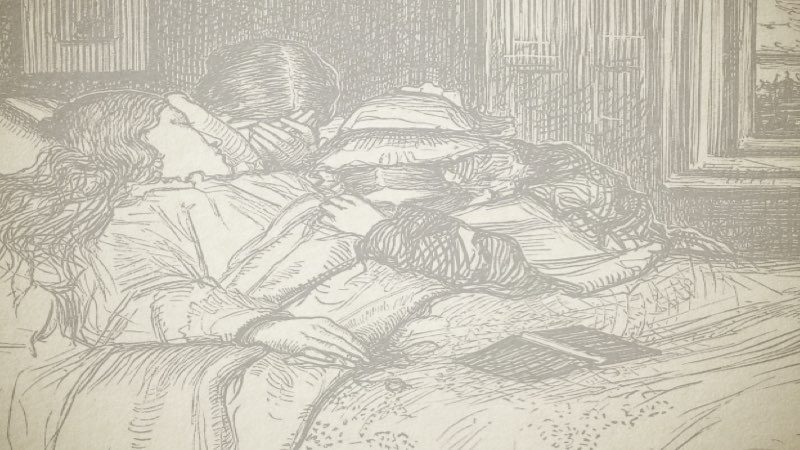Elizabeth Gill
Elizabeth Gill (1725-1738) was the daughter of John and Elizabeth Gill. In 1736, at the age of eleven, she came under conviction of sin and was brought to a saving knowledge of Christ. Two years later, while on her death-bed, she and her father discussed spiritual matters, at which time she uttered the words, “Christ died for me.” John replied, “My dear, can you say, ‘Christ died for you’?” “Yes,” she said, “Christ died for me.” During her life-ending affliction, she found much comfort in the scriptures, among which was Isaiah 41:10, “I will strengthen thee; yea, I will help thee; yea, I will uphold thee with the right hand of my righteousness.” After her death, John recorded the following about his daughter’s life and testimony—“She desired not to have a proud look, or carriage, or to behave herself proudly, in any respect. She thought within herself, that should she live to be a woman, and God should bless her with anything of this world, she should choose to go neat and clean, but would not spend her money in fine clothes; but what she could spare would give to good people that were poor. And as to things spiritual, she was always fearful, lest any pride or vanity should appear in her: Hence she was shy of speaking of what God had done for her, lest it should seem, or be thought to arise from pride, and so be a matter of boasting. Hence she studiously affected to retire into corners, to read good books, and to desire of God to give her his grace. Frequently her bed, and time of sleep and rest, were the place and time of her serious and deepest meditations; for then, to use her own words, she could privately speak to herself. And God did clothe her with humility, and gave her the ornament of a meek and quiet spirit, which is in his sight of great price: And to the last she entertained a mean and low opinion of herself.”
-
The Life And Death Of Elizabeth Gill
I need not tell you what is the occasion of my reading these words to you at this time. This is done not so much on your account as on my own. You must permit me, this afternoon, to preach rather to myself and family than to you; though I hope what may be delivered may be of some service among you also. The apostle in this chapter exhorts the Thessalonians to a diligent discharge of several duties of religion, which became their character and profession; whereby they would be serviceable to one another, please God, and adorn the doctrine of Christ Jesus. He signifies, that they needed not to be wrote unto concerning brotherly love, because they were taught of God to love one…

